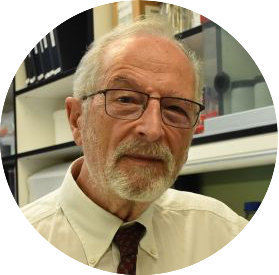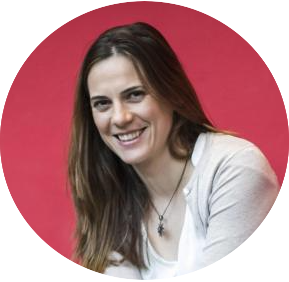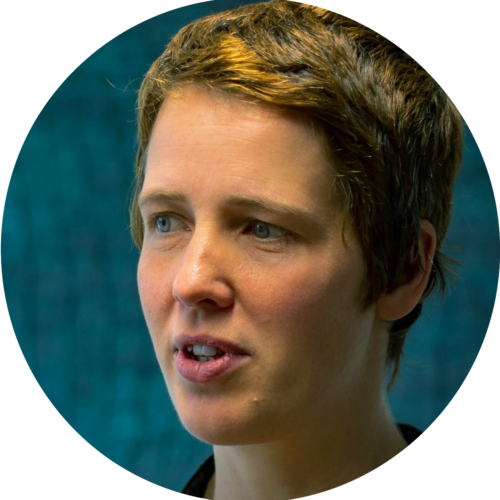Keynotes

Luis Enjuanes
CSIC research professor at the National Center for Biotechnology and director of the Coronavirus GroupProf. Luis Enjuanes has been working for more than 35 years on the mechanisms of replication, transcription, virulence and virus-host interaction of coronaviruses. Since January 2020, his group has been working on a vaccine against SARS-CoV-2, applying the scientific knowledge that they already used in previous coronavirus outbreaks: 2002 SARS-COV and MERS in 2012.
Throughout his career, Prof. Enjuanes has published more than 235 articles in international journals and 58 book chapters. He was a Fogarty Visiting Fellow at the US National Institutes of Health (NIH), and a visiting scientist at the US National Institutes (NIH) Center for Cancer Research (FCRC). He is a professor of Virology at the Autonomous University of Madrid and the Pasteur Institute in Paris, France.
Prof. Enjuanes has been appointed Senior Distinguished Virologist by the Spanish Society of Virology, Academic of the Royal Academy of Exact, Physical and Natural Sciences, and Academic of the North American Academy of Microbiology. He is also an Expert Consultant for the NIH and the World Health Organization, and has been editor-in-chief of Virus Research. Prof. Enjuanes also received the Spanish Medal of Merit in Research and University Education awarded by the Spanish Ministry of Science and Innovation.
In 2021, Luis Enjuanes was elected an international member of the USA National Academy of Sciences. This election recognizes his distinguished and continuing achievements in original research.

Nerea Irigoyen
Head of a research team in the Division of Virology (Department of Pathology) at the University of Cambridge, United KingdomDr. Nerea Irigoyen is a Spanish virologist who stands out for her research on Zika virus and betacoronaviruses. She was one of the first researchers to apply a technique termed ribosome profiling to study RNA viruses such as coronaviruses, HIV-1, or flaviviruses such as Zika virus.
Her research line mainly focuses on understanding virus translation in viral pathogenicity and disease with a special interest in virus-host interactions. In 2020, Nerea changed the course of her research activity to study Covid-19. The main purpose was to find pharmacological treatments against cellular pathways that are involved in SARS-CoV-2 infection with a special interest in drugs targeting cellular stress responses such as the unfolded protein response (UPR). This type of treatments can have a dual therapeutic effect, not only diminishing the viral burden in patients but also the pathophysiology associated with the disease.
She is a founding member of the Society of Spanish Scientists in the United Kingdom (SRUK/CERU), an association that seeks to promote communication between the Spanish researchers in the UK. She was the director of the Cambridge Delegation from July 2014 to July 2016 and the Director of International Collaborations until July 2018.

Nuria Oliver
Chief Data Scientist at Data-Pop Alliance, Chief Scientific Advisor at the Vodafone Institute and co-founder and vice-president of ELLIS (European Laboratory for Learning and Intelligent Systems)Dr. Nuria Oliver has over 25 years of research experience in the areas of human behaviour modelling and prediction from data and human-computer interaction. Nuria is well known for her work in computational models of human behavior, human computer-interaction, intelligent user interfaces and mobile computing and big data for social good. In March 2020, she was named Commissioner for the President of the Valencian community (Spain) on AI Strategy and Data Science to fight Covid-19.
A team of scientists headed by Dr. Nuria Oliver won the first prize in the 500k Pandemic Response Challenge. The main goal was to build effective data-driven AI systems capable of accurately predicting COVID-19 transmission rates and prescribing intervention and mitigation measures that, with testing in “what-if” scenarios, were shown to minimize infection rates as well as negative economic impacts. She is co-inventor of over 40 filed patents and her work has contributed to the improvement and creation of new services, the definition of business strategies and the foundation of new companies.

Viola Priesemann
Head of a research group at the Max Planck Institute for Dynamics and Self-OrganizationDr. Viola Priesemann studies propagation processes in complex systems and the self-organization and emergence of information processing in living and artificial neural networks.
In the course of the COVID-19 pandemic, Dr. Priesemann researched the spread and containment strategies of the coronavirus SARS-CoV-2. She was initiator of a Pan-European Statement, which emphasizes the need for a common European approach to Covid-19 containment and also presents a clear action plan. Since the beginning of the pandemic, she has been calculating scenarios of how the spread of the SARS-CoV-2 coronavirus accelerates or weakens under different conditions. Dr. Priesemann and her research group at the Max Planck Institute have been recognized in several occasions for their valuable advice in decision-making at different levels.
Dr. Viola Priesemann is a Fellow of the Elisabeth Schiemann Kolleg and a member of the Cluster of Excellence Multiscale Bioimaging.

Esteban Moro
Professor at MIT Connection Science and Universidad Carlos III (UC3M)Prof. Esteban Moro is a researcher, data scientist, and professor at MIT Connection Science and Universidad Carlos III (UC3M) in Spain. He has published extensively throughout his career (more than 100 articles) and has led many projects funded by government agencies and/or private companies.
Esteban’s work lies in the intersection of big data and computational social science, with special attention to human dynamics, collective intelligence, social networks, and urban mobility in problems like viral marketing, natural disaster management, epidemics, or economic segregation in cities. He has received numerous awards for his research, including the “Shared University Award” from IBM in 2007 for his research in modeling viral marketing in social networks and the “Excellence in Research” Awards in 2013 and 2015 from UC3M.
Esteban’s work appeared in major journals, including Nature, PNAS, or Science Advances, and is regularly covered by media outlets The Atlantic, The Washington Post, The Wall Street Journal, and El País (Spain).
